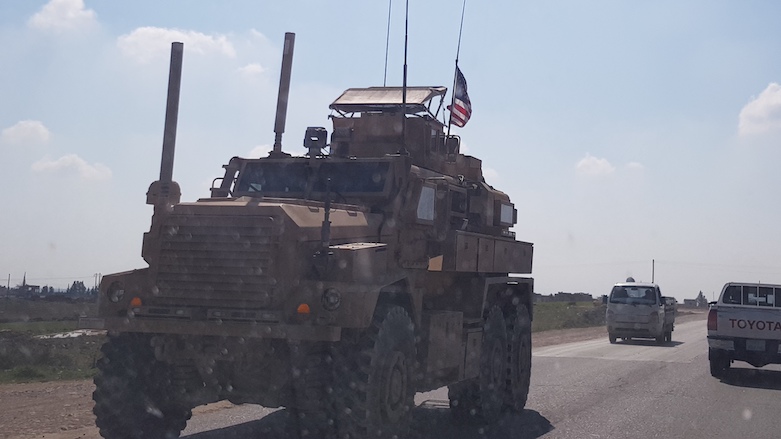US soldier dies during non-combat incident in Kurdish city of Kobani in Syria

ERBIL (Kurdistan 24) – The US Department of Defense (DoD) on Monday identified a US soldier who died Monday in the Kurdish city of Kobani.
Pfc. Michael A. Thomason, 28, from Lincoln Park, Michigan, died April 29, 2019, in Kobani, Syria, of wounds sustained from a non-combat incident, the Pentagon said.
The soldier was part of Combined Joint Task Force-Operation Inherent Resolve (CJTF-OIR), the US-led coalition battling the so-called Islamic State in Syria and Iraq, which backs the Syrian Democratic Forces (SDF).
The Pentagon did not explain how the US soldier died.
"A non-combat death means related to injuries sustained in training, or vehicular accidents, or in some extreme cases sickness, also sometimes as a result of contact with local animals, plants, or food-borne illness," Nicholas A. Heras, a Fellow at the Center for a New American Security, told Kurdistan 24.
On April 24, the Pentagon also announced the death of another soldier, who was part of CJTF-OIR in Taji, Iraq.
Heras added although Syria in general is a war zone and dangerous, the city of Kobani is more secure.
“Within the SDF's zone, there are enclaves that are considered relatively more secure than others, and Kobani is one of them."
The Kurds defeated the so-called Islamic State in Kobani with US support in January 2015, after a battle lasting several months, following its original siege of the city.
Now the city is safe, and many foreign staff of NGOs work from Kobani and eat there in restaurants in the evening. Furthermore, US soldiers can sometimes be seen shopping in the town.
The safety of the town is shown by the opening of a restaurant named after US president Donald Trump in 2017. Also, a church for Kurdish Christians was opened last year, reflecting the stability in the city.
"This type of casualty in Kobani does not mean that the city is unsafe, it simply means that deadly accidents and illnesses can still be a feature of a soldier's life when deployed," Heras concluded.
In the three years that US forces have been in northeastern Syria, they have suffered very few casualties.
Although Kobani is safe, Arab majority towns that were liberated by the SDF in the last few years have suffered attacks from Islamic State sleeper cells.
On January 16 a bombing claimed by the Islamic State at a popular Manbij restaurant killed 19 people, including four Americans.
Shervan Derwish, the spokesperson for the Manbij Military Council, in an interview on February 26, explained that the Islamic State would remain a threat even after it was militarily defeated, particularly in territories that it had controlled for several years, such as Manbij and Raqqa.
Editing by Laurie Mylroie
